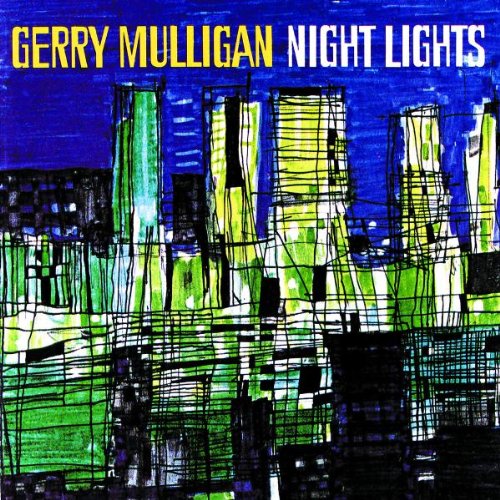2. Gerry MulliganNight Lights

This one is kind of a personal story: my father had this record and he was listening to it a lot. The fourth track is Chopin’s ‘Prelude In E Minor’ – [sings] an old Chopin piece for piano – and when I hear that piece I always remember listening to it as a kid and it just makes me cry; it’s so beautiful.
It sounds a little like a very normal bar jazz record on the first listen and then, when you listen to it more and more, and you listen closely, you realise certain things. First of all, that even though it was recorded in 1963 it sounds so timeless – the audiophile quality of it sounds so smooth and so clean in a way, and then the drums and how everything’s positioned. Just from the point of view of a recording engineer, I really love that record because it sounds so good. Everybody plays so well together: it has this roundness and warmness and this crazy openness.
It’s just fantastically produced – but it also has this kind of spirit: the jazz musicians would come to the studio and they would work for two days or something at the max, one day recording and one day mixing – done. For that reason alone it’s already inspirational – for how effective those guys were at producing the records and how flawless they turned out to be even though they really had to be spot on in just those couple of hours.
But Gerry Mulligan, he’s not a Miles Davis character. Miles Davis is a superstar, an icon, and Gerry Mulligan is just a really hard working, very solid artist. He was always pushing the togetherness of the jazz band while other players, especially the early ones, like Dizzy Gillespie and Charlie Parker, were more about battling. Gerry Mulligan brought this kind of heartfelt togetherness into jazz.
It’s the soundtrack to my life, basically. I could listen to that record five times a day and never get tired of it. And, in retrospect, it’s just another Gerry Mulligan no one knows.


